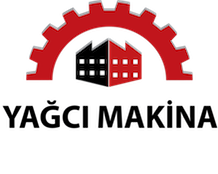Fertilizer Production and Manufacturing: A Comprehensive Overview
Fertilizer production plays a critical role in modern agriculture, ensuring that crops receive the essential nutrients for growth. The manufacturing of various types of fertilizers involves the use of advanced machinery and processes to create products tailored to the needs of different plants. Let's explore some key fertilizers and the processes involved in their production.
Diammonium Phosphate Fertilizer (DAP)
One of the most common fertilizers in agriculture is diammonium phosphate fertilizer (DAP). This compound fertilizer is widely used because it provides both nitrogen and phosphorus, which are essential for plant growth. DAP is produced by reacting ammonia with phosphoric acid to form the compound.
Compound Fertilizers
Compound fertilizers are blends of various nutrients, often containing a combination of nitrogen (N), phosphorus (P), and potassium (K), commonly referred to as NPK fertilizers. These fertilizers are customized to meet specific plant requirements and improve crop yields.
Urea for Plants
Another commonly used nitrogen source is urea for plants. Urea fertilizer is a highly concentrated form of nitrogen, making it a popular choice for providing plants with the essential nutrient. Urea fertilizer making machines are used to produce urea by combining ammonia and carbon dioxide under high pressure.
Fertilizers for Potted Plants
Fertilizer for potted plants is designed to meet the unique needs of plants grown in containers, where nutrient availability can be limited. These fertilizers often come in slow-release or water-soluble forms to ensure that nutrients are delivered consistently to the plant over time.
Calcium Ammonium Nitrate (CAN)
Calcium ammonium nitrate (CAN) is a versatile nitrogen fertilizer that contains both calcium and nitrogen. It is especially effective in improving soil structure and preventing soil acidity. CAN is produced by neutralizing nitric acid with limestone to form the compound.
Ammonium Sulfate
Ammonium sulfate is another nitrogen-rich fertilizer that also provides sulfur, an essential nutrient for plant development. It is commonly used for crops that require high nitrogen levels and is produced by neutralizing ammonia with sulfuric acid.
Bulk Blend Fertilizer
Bulk blend fertilizers are customized mixtures of various fertilizers, including urea, DAP, ammonium sulfate, and more, tailored to meet the specific needs of a farm or crop type. These blends are prepared and packaged in bulk for large-scale agricultural use.
Organic Fertilizer Granule Making Machines
The production of organic fertilizers has gained popularity due to their environmentally friendly nature. Organic fertilizer granule making machines help in turning organic materials into nutrient-rich granules that are easy to apply. These machines are an integral part of organic fertilizer manufacturing plants, where composted organic materials like manure, crop residues, and food waste are transformed into usable fertilizers.
Rotary Granulators and Pelletizer Machines
Rotary granulators and pelletizer machines are used to form granules or pellets from fertilizer powders. These machines play an essential role in shaping fertilizers into uniform sizes for easier handling and application. Pelletized fertilizers have the added benefit of slow nutrient release, promoting consistent plant growth.
Solid-Liquid Separating Machines and Compost Machines
In the production of organic fertilizers, solid-liquid separating machines and compost machines are used to process organic waste into high-quality compost. These machines separate liquid nutrients from solid matter, ensuring that the final product is rich in organic matter and plant nutrients.
Fertilizer Manufacturing
The process of fertilizer manufacturing involves multiple steps, including raw material sourcing, blending, granulation, drying, and packaging. The goal is to produce high-quality fertilizers that effectively nourish plants while being easy to apply. Modern fertilizer manufacturing facilities utilize a range of machinery, including urea fertilizer making machines, organic fertilizer manufacturing plants, and bulk blend equipment to ensure a consistent and efficient production process.
In conclusion, the production of fertilizers is a complex but vital industry that supports global food production. With the use of advanced technologies such as rotary granulators, compost machines, and solid-liquid separating machines, the industry continues to innovate and meet the growing demand for fertilizers that promote healthy crops and sustainable farming practices.

 English (United Kingdom)
English (United Kingdom)  French (fr-FR)
French (fr-FR)  Turkish (tr-TR)
Turkish (tr-TR) 
